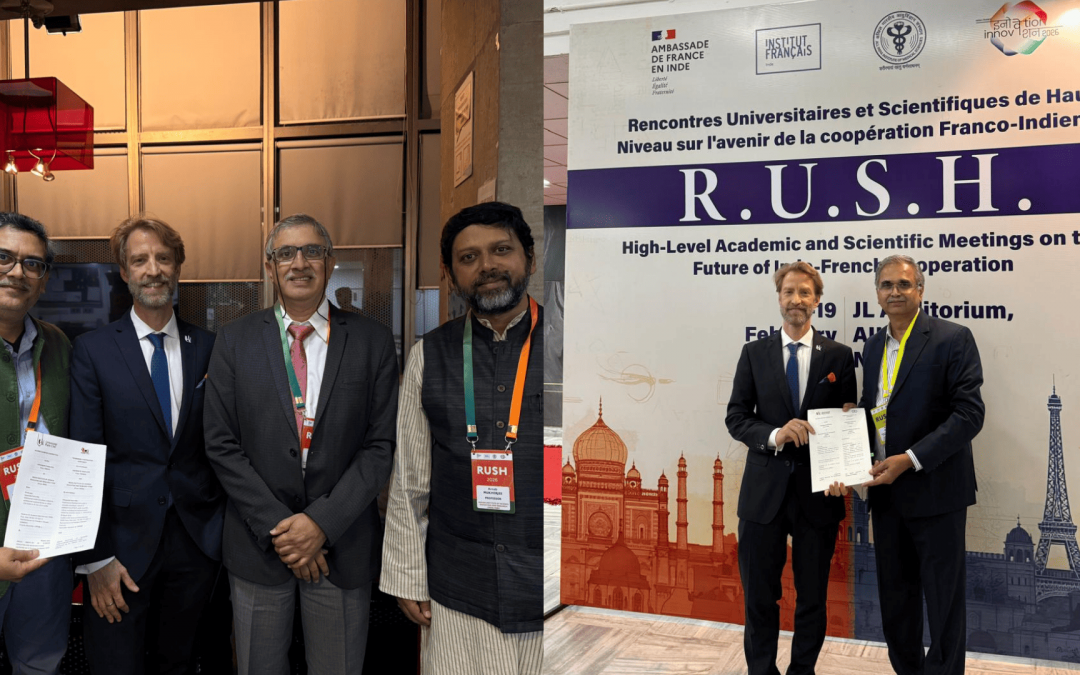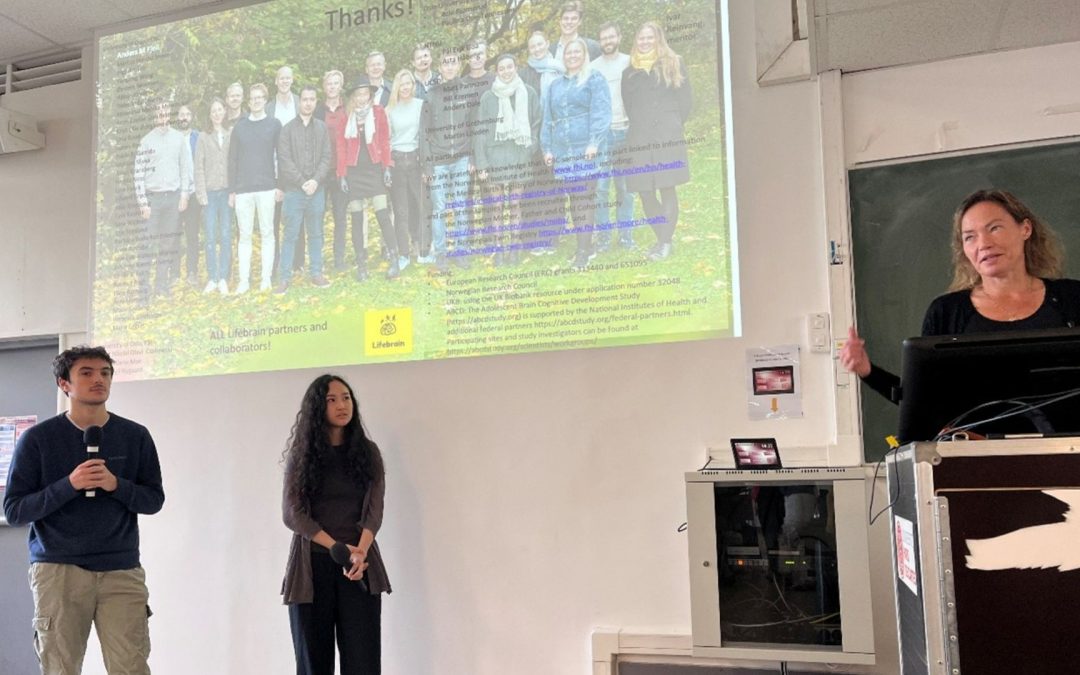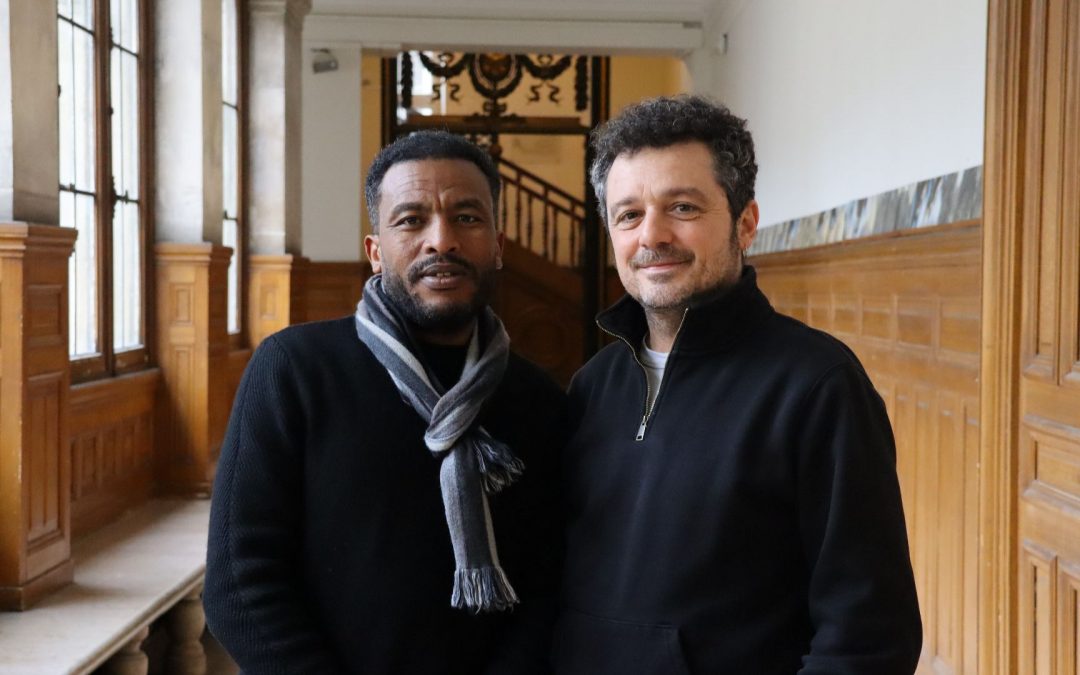Université Paris Cité organizes a selection process for awarding doctoral contracts to candidates with an international background. Thirteen subjects have been selected for which funding will be awarded thanks to IDEX Université Paris Cité.

Within the scope of this project, if more information is required, research teams should contact Ecoles Doctorales, notably to find out more on the internal schedule set by them.
The project includes:
- A 36-month doctoral contract
- A stay of at least two months in a laboratory outside France or in a non-academic partner (company, association, administration…)
- Specific funding for mobility of €2,500.
Special attention is paid to ensure a transparent, open and merit-based recruitment process.
Link to the application: https://u-paris.emundus.io
List of topics
Life Sciences
LS #1: “Representations of feedback in human learning” dirigée par Waszak Florian (INCC – Centre Neurosciences intégratives et Cognition)
LS #2: “Génotypage de l’apoliprotéine E et maladie d’Alzheimer: corrélats neuro-anatomiques et impact sur la survie des patients” dirigée par Dumurgier Julien (CRESS – Centre de recherche épidémiologies et bio statistique de Sorbonne Paris Cité)
LS #3: “Role of snares in membrane fusion and neuronal growth – reconstitution in bacteria and functional studies in neurons” dirigée par Galli Thierry (IPNP – Institut de psychiatrie et neurosciences de Paris)
LS #4: “Assessment of germline AXL mutations in mast cell tumor development” dirigée par Maouche-Chrétien Leïla (IMAGINE – IHU Imagine-Institut des Maladies Génétiques)
LS #5: “Etude des interactions entre les défensines et le microbiote intestinal: mécanismes et outil thérapeutique” dirigée par Chassaing Benoît (Institut Cochin)
LS #6: “Epitranscriptomic impact on HIV life cycle” dirigée par Sargueil Bruno (CiTCoM – Cibles Thérapeutiques et conception de médicaments)
Physical Sciences and Engineering
PSE #1: “Machine Learning for Euclid Mass Mapping and cosmological parameter estimation” dirigée par Starck Jean-Luc (AIM Paris-Saclay – Astrophysique, Interprétation, Modélisation de Paris-Saclay)
PSE #2: “Toward a sustainable rechargeable electrochromic window for smart buildings” dirigée par Balland Véronique (LEM – Laboratoire d’Electrochimie Moléculaire)
PSE #3: “Physical geochemistry of a volcanic island hydrothermal system: sources, dynamic and precursors of volcanic activity” dirigée par Moretti Roberto (IPGP – Institut de Physique du Globe de Paris)
PSE #4: “Protein evolution and sequence landscapes” dirigée par Zamponi Francesco (LPENS – Laboratoire de Physique de l’ENS)
Social Sciences and Humanities
SSH #1: “Fast and slow thinking: advancing the specification of the dual process model of human reasoning” dirigée par De Neys Wim (LaPsyDé – Laboratoire de Psychologie du développement et de l’éducation de l’enfant)
SSH #2: “Contact-grammaticalization in modality: a constrastive and comparative analysis in New Englishes” dirigée par Celle Agnès (CLILLAC-ARP – Centre de Linguistique Interlangues, de Lexicologie, de Linguistique Anglaise et de Corpus – Atelier de recherche sur la parole )
SSH #3: “Système verbal et TAME d’une langue australienne Maningrida – approches formelles et expérimentales / The TAME verbal system of a Maningrida Australian language: formal and experimental approaches” dirigée par Caudal Patrick (LLF – Laboratoire de linguistique formelle)
Calendar
Until March 20, 2020: application phase:
- March 2020: the EDs review the applications received. For each subject, a maximum of 3 applications can be submitted
- 23 April 2020: an external jury interviews and ranks the candidates
- October 2020: welcome of the award-winners and beginning of the theses
Topic selection procedure
In coherence with the 4IMPACT project, the “3i” aspects (international, interdisciplinary and intersectoral) will be particularly considered. The choice of topics must take into account:
- The originality of the project (25%): state of the art, context, expected results, feasibility of the proposed methods, interest for the candidate’s training, potential for further use
- Quality of supervision (20%): ability of the supervisor to provide a positive and stimulating environment; quality of the seconder and his/her specific contribution to the training of doctoral students and to the research project
- Feasibility within 3 years of the thesis (20%): the project must be both ambitious and innovative and achievable within the planned timeframe
- 3i” implementation (35%): description of the implementation of the 3i competencies, including the formal (written) agreement for the envisaged second(s). The quality of local supervision and training input will be a key element of the assessment.
The first selection stage takes place at the level of doctoral schools and the second at the level of the Collège des Ecoles Doctorales (CED).
Topics are proposed by potential thesis supervisors. They are evaluated by the doctoral schools according to a scoring grid that includes the above items, comments for each item, and an overall commentary. The scores of this grid are to be shared with each project leader individually. The Doctoral Schools forward all the subjects examined to the CED, identifying the two selected. An ad-hoc commission (see below) will then examine all the subjects preselected by the Doctoral Schools and will select between fifteen and twenty of them, taking into account, on the one hand, the elements provided by the doctoral schools and, on the other hand, considerations of the institution’s scientific policy.
– The subjects selected by this commission will then be put online on the university’s platform dedicated to the calls.
Candidate selection process
Once the application period is closed, the candidates’ files will be graded on the platform by three experts internal to the Doctoral School and chosen by them, including the candidate’s thesis supervisor.
Candidates will be first evaluated internally using the following criteria:
- Academic background (50%): grades and academic background (including ranking and possible prizes);
- Research experience (20%): previous research experience, publications and/or communications;
- Non-research professional experience (20%);
- International mobility (10%): previous mobility at Bachelor or Master level.
Based on these three evaluations, one of the experts (excluding the thesis supervisor and chosen by the supervisor) will be responsible for harmonizing the evaluations to establish the final grade for each candidate. Depending on the grades obtained, up to three candidates will be auditioned by a jury. The jury will be made up of 100% external personalities, designated by the CED. These juries will be divided into sectors according to the nomenclature of the European Research Council (life sciences, physical sciences and engineering, social sciences and humanities).
Eligibility requirements
- Less than twelve months of residence in France during the three years preceding the selection
- Candidates must hold a diploma that allows access to doctoral studies in France (Master’s degree or other equivalent diploma) at the time of recruitment
- No previous registration in doctoral studies
- Required diploma must have been obtained less than 4 years before the start of the project
Read more

The Indian Institute of Science Education and Research in Pune and the Indian Institute of Technology in Bombay: UPCité’s first partners in India.
Antoine Kouchner, Vice-President of Strategy and International Relations at Université Paris Cité, travelled to India for the official visit of the President, Emmanuel Macron, to the High-Level Scientific and Academic Meetings (RUSH). In this context, UPCité...

International Day of Women and Girls in Science: celebrating the women who push research forward
February 11 was the International Day of Women and Girls in Science. On this day, Université Paris Cité reaffirms its commitment to the equality between men and women and celebrates the journey of the women who advance research. Between celebrating our heritage and...

INC Day 2025: an international scientific day dedicated to neuroscience
The Neuroscience and Cognition Institute of Université Paris Cité (INC) organized a new edition of the INC Day, focused on neurodevelopmental trajectories. A key partner of the event, the Graduate School Neuroscience invited its first year and second year master...

Abraha and Pierre: A Friendship to Preserve the People’s Memory of War
In Paris, two historians’ paths crossed. One had just arrived from Ethiopia, carrying notebooks filled with daily observations written during the war in Tigray. The other, based in France, is a specialist of Ethiopian modern history. From this encounter, a partnership...
